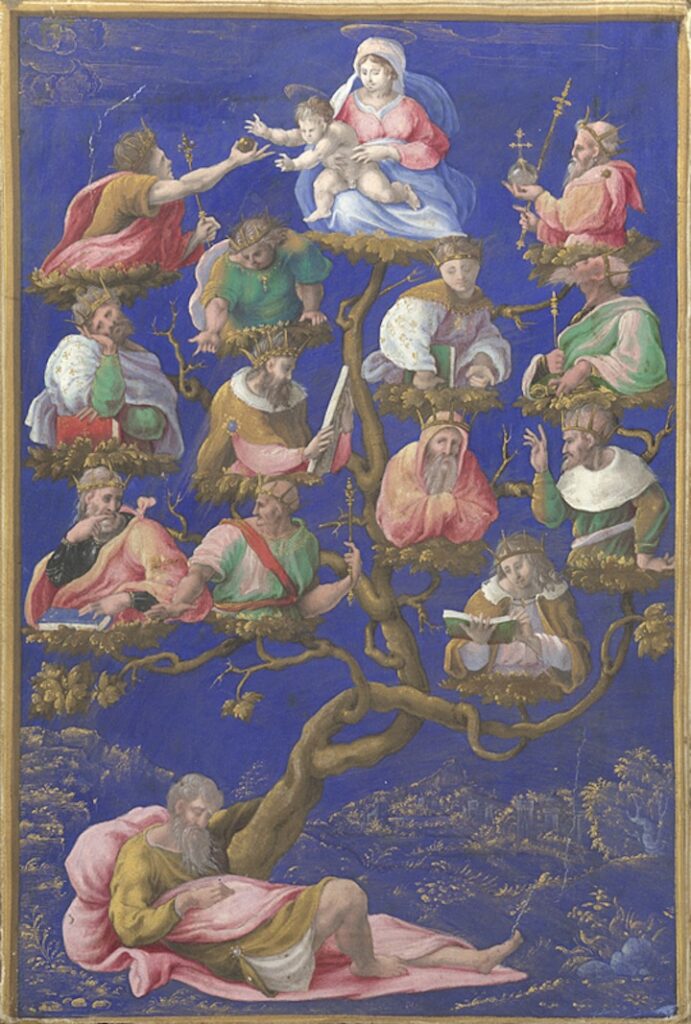It’s no secret that Advent is perhaps the most overlooked liturgical season. Catholics can all admit, to varying degrees, to just being especially busy right now amid any number of mundane tasks. And I’ve noticed an additional trend among well-meaning Catholics that goes something like this: “Given the wretched state of affairs today, we need some Christmas cheer now. So yes, we’re cheating and breaking out the Christmas decor in our house, even though Advent has barely begun, because we’re just so tired and down.”
I understand. But for those who just want to fast-forward through Advent: you don’t know what you’re missing. Advent, properly observed over the whole of four weeks, is actually what you’re craving, deep down.
We Catholics are not gluttons for punishment who like to fast from the abundance of the secular Christmas season simply because we’re hardcore. Rather, the Advent fast, the forbearance, this “not yet,” gives voice and shape to our deepest longings for peace, for repair, for salvation in a broken world.
The bleak December landscape sets the tone. December is that first month that we have real silence outside. The leaves have fallen; most animals have gone into hibernation; the birds have largely migrated. Sharp winds whip through the ice-bare trees. The long winter night diminishes the day. If we’re paying attention, it’s a silence and darkness that begs to be filled.
Advent is a penitential season, yes, but one that grows brighter and more hopeful in tone as Christmas nears. The daily Mass readings begin with the dire prophecies of the Four Last Things, then move us to John the Baptist’s stirring call to repentance, and finally to the coming of the Savior. It’s a season of longing, of hope to be fulfilled, of daring to hope against hope that God keeps his promises.
Do we have serious problems to worry about today? Absolutely. And that’s always been the case. The Advent tradition of the Jesse Tree readings takes us through salvation history, where we see vivid accounts of debauchery, family betrayal, fratricide, incest, wars, horrific sieges, oppression, idolatry, deceit. There is nothing new under the Sun.

If we’re wondering where God is in personal tragedy or social chaos, we see that the Jews would understandably have been asking the same thing after they were deported and scattered throughout the known world. Even after they returned to Jerusalem, they were conquered again and crushed under Roman occupation. The Psalms and prophets of the daily Mass readings echo again and again with longing for salvation, with the certitude that human affairs are broken beyond repair and that God alone can save us.
The Advent prayers and chants give us a voice, a prayer-of-the-guts where we can wrestle with God like Jacob, appeal to God like Jeremiah. The “O Antiphons” offer us a haunting yet beautiful retreat for the final eight days of the season, calling out for God – “O Wisdom,” “O Key of David” – like a watchman waiting for the dawn. The Office of Readings for December 20 gives us St. Bernard’s brilliant account of the Annunciation – we, like Gabriel, are painstakingly leaning forward with all of creation awaiting Mary’s reply; unlike Gabriel, we are silently begging for Mary’s “fiat” because we still groan in sin and “the sentence of condemnation weighs heavily upon us.”
Whether or not we want to admit it, the Advent season – a deep meditation on salvation history and an emphasis on God’s future coming – allows us to truly acknowledge and name the God-sized hole in our heart and the tragedy around us. We can’t just ignore it by numbing ourselves with food and music.
A crucial first step of dealing with sorrow or grief is acknowledging its existence. We can’t do this by celebrating, no matter how hard we try. Advent bids us pause, silence ourselves, ponder the end of life, and reflect on the cause of this sickness, death, and hatred that runs roughshod over the world.
And if we give time to prayer and reflection, we will see more clearly that sin, our sin, is the cause – and Christ is the cure. No secular Christmas music, no sentimental comfort, no feasting before the feast day will reveal that to us. Only the watchful shepherds met Christ at his coming, not the revelers.
Christmas will come soon enough. We’ll have twelve days of it and a whole season of feasting. Depending on your preference for tradition, you could carry the party for 40 days until Candlemas. But, like Ebenezer Scrooge in Dickens’ A Christmas Carol, who first had to meet the ghosts of Christmas as part of his necessary purgation for the holy day, we must first grapple with the patriarchs and prophets who foretold the doom of the world – and the coming of Christ.















